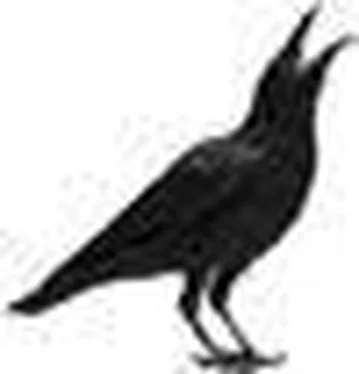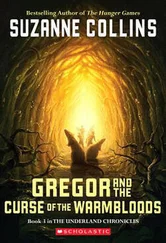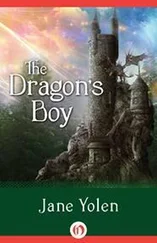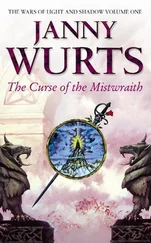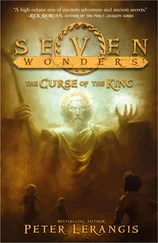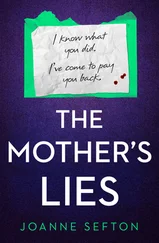“I’m not sure it’s even about finding him,” I confessed.
“Then, what the devil is it about?”
“I think it’s mostly about her.”
“Who?”
“Mrs. Chanler.”
“Mrs. Chanler!” Sergeant Hawk whispered. “What do you—Oh. Oh! Is that what—Well, you don’t say!” He chuckled sleepily. “Not so coldlike after all, eh?”
He rolled onto his side, and within a few seconds the sides of the tent began to vibrate from the potency of his snores. I lay sleepless for a long time, not kept awake by his snoring so much as by the disorienting lightness of being, the sense of being very small in a vast, empty space, far from all that was familiar, adrift in a strange and indifferent sea. I watched through half-closed eyes the shape of my master outside; it comforted me somehow. I fell asleep holding close that unexpected balm, drawing it into me or allowing it to draw me into it—the conceit of the monstrumologist watching over me.
The unease I suffered that first night in the bush—made all the more distressing after the keen anticipation I had felt on the outset of the journey—persisted in the days that followed, an odd mixture of boredom and anxiety, for as hour followed monotonous hour, the woods took on a dreadful sameness, each turn of the path bringing more of the same, mere distinctions with no difference. At times the trees suddenly parted, like a curtain being whipped aside, and we’d stumble from the forest’s perpetual gloom into the sudden sunlight of a clearing. Huge boulders thrust their heads from the earth, stony leviathans breaking the surface of the glen, their craggy faces sporting shaggy beards of lichen.
We crossed innumerable streams and creeks, some too wide to jump across; we’d no choice but to ford their icy waters on foot. We scrambled over washouts and through deep ravines where the shadows pooled thickly even at midday. Ruined landscapes that Hawk called brûlé rose up to meet us, where the charred bones of silver birch and maple, spruce and hemlock, marched to the horizon, victims of the spring fires that had raged for weeks, creating an apocalyptic vista stretching as far as the eye could see, where the restless wind whipped the inch-deep ash underfoot into a choking fog. In the midst of this desolation, I looked up and saw high above a black shape against the featureless gray, an eagle or some other great bird of prey, and for a shuddering moment I saw us through its eyes—pitifully small, wholly insignificant nomads, interlopers in this lifeless land.
Sergeant Hawk tried to halt each day’s march at some open spot in the bush, but sunset often caught us deep in the forest’s belly, forcing us to make camp in a blackness as profound as the grave’s, where, if not for the campfire, you could not see your hand an inch from your face.
Our guide’s good nature helped too in relieving the insistent dark. He told stories and jokes—some, if not most, on the bawdy side—and, possessing a fairly decent voice, sang the old songs of the French voyageurs, tilting his chin slightly as if to offer his song to some nameless forest god:
J’ai fait une mâtresse y a pas longtemps.
J’irai la voir dimanche, ah oui, j’irai!
“Do you know that one, Doctor?” he teased my master. “‘ Le Coeur de Ma Bien-aimée’ —‘ The Heart of My Well-Beloved’ ? ‘A gentle lady charmed me, not long ago . . .’ Reminds me of a girl I knew in Keewatin. Can’t recall her name now, but by God I was damn near to marrying that one! Are you married, Doctor?”
“No.”
“Ever been?”
“I have not,” replied the monstrumologist.
“Been damn near ready, though?”
“Never.”
“What, don’t you like women?” he ribbed, giving me a wink.
The doctor pursed his lips sourly. “As a man of science, I have often thought that, for the sake of accuracy, they should be classified as a different species altogether— Homo enigma , perhaps, or Homo mortalis. ”
“Well, I don’t know much about your science, Dr. Warthrop. I reckon a monster hunter looks at things a little differently than most, always with the eye turned to the dark and ugly, but all the more appreciative of the bright and fair when it comes along, or so I’d guess. I’ll take your word for it, though.”
He sang softly, “La demande à m’amie je lui ferai . . .”
Warthrop pushed himself to his feet with a snarl. “Please, would you cease with that infernal singing!”
He stomped away into the thick underbrush, stopping where the light of the campfire met the dark of the forest. His lean frame seemed to writhe as though he were in the superheated air above the fire.
Hawk was unperturbed. He poked me in the side and pointed at the doctor. “Seems to me he’s the kind who hates what he loves, Will,” he opined. “And the other way around!”
“I heard that, Sergeant!” snapped Warthrop over his shoulder.
“I was speaking to your indispensable servant, Doctor!” Hawk called back jovially.
The doctor lowered his head slightly. He held up his hand. His fingertips twitched; otherwise, he was motionless, as inflexible as a post driven into the ground. He seemed to be listening to something. Hawk turned to me, grinning foolishly, and started to speak, but his words died on his tongue when I scrambled to my feet. I knew my master; my instinct reacted to his.
A gust of wind stirred the monstrumologist’s hair and excited the flames of our fire; sparks jigged and spun; the sides of the tent fluttered. Hawk called softly the doctor’s name, but the monstrumologist gave no reply. He was peering into the dark woods, as if he had cat’s eyes that could penetrate the murk.
Hawk looked at me quizzically. “What is it, Will?”
The doctor plunged into the brush, disappearing into the trees in a wink, swallowed whole by the leviathan dark. So quickly did it happen that it looked as if something had reached out of the woods and snatched him. I rushed forward; Hawk grabbed me by the collar and yanked me back.
“Hold now, Will!” he cried. “Quick, there’s a couple of lamps in my rucksack.”
Within the woods we could hear the doctor crashing and stomping about, the sound fading as he drew farther and farther away. I lit the lamps with a brand from the fire and handed one to Hawk, and we charged into the bush after my wayward mentor. Though our lights barely dinted the dark, Warthrop’s trail was not hard for Hawk to follow. His expert eye picked out every broken twig, every bit of disturbed earth. Sight was all he could rely upon, for the night had gone deathly quiet. There was no sound but that of our own passage through the dense foliage. Vine and branch tugged upon us as if the forest itself were trying to slow us down, as if some primal spirit were saying, Stay. Stay, you do not wish to see.
The ground rose. The trees thinned. We stumbled into a clearing radiant in starlight, in the center of which stood the shattered trunk of a young hemlock, snapped off eight feet from the ground, and around its base were scattered the broken bones of its branches. It looked as if some giant had reached down from the star-encrusted heavens and snapped it in two like a toothpick.
Standing a few feet from the tree was the monstrumologist, head cocked slightly to one side, arms folded over his chest, like a connoisseur at a gallery regarding a particularly interesting piece of art.
A human being was impaled upon the splintered hemlock, the pole protruding from a spot just below its sternum, the body at the level of Warthrop’s eye—arms and legs outstretched, head thrown back, mouth agape, depthless shadows pooling there and in its eyeless sockets.
The body had been stripped bare. There were no clothes and, except for on the face, there was no skin; the body had been flayed of both. The underlying sinew and muscle glimmered wetly in the silver light.
Читать дальше
